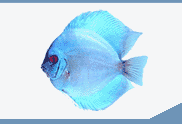

 |
||||||||||||
 |
||||||||||||
| Stress - Its Role in Fish Disease | ||||||
| Page 4 of 5 | Pages: 1 . 2 . 3 . 4 . 5 | |||||
Prevention of Stress The key to prevention of stress is GOOD MANAGEMENT. This means maintaining good water quality, good nutrition, and sanitation. Good water quality involves preventing accumulation of organic debris and nitrogenous wastes, maintaining appropriate pH and temperature for the species, and maintaining dissolved oxygen levels of at least 5 mg/I. Poor water quality is a common and important STRESSOR of cultured fish and precedes many disease outbreaks. Feed a high quality diet that meets the nutritional requirements of the fish. Each species is unique and the nutritional requirements of different species will vary. Supplementing diets with fresh vegetables and live food is a good way to provide a balanced diet for fish which have poorly understood nutritional requirements. Fish in ponds have an advantage over fish raised indoors, because of the variety of natural foods available. Proper sanitation implies routine removal of debris from fish tanks and disinfection of containers, nets, and other equipment between groups of fish. Organic debris which accumulates on the bottom of tanks or vats is an excellent medium for reproduction of fungal, bacterial, and protozoal agents. Prompt removal of this material from the environment will help decrease the number of agents the fish is exposed to. Disinfection of containers and equipment between groups of fish helps minimize transmission of disease from one population to another. Prevention of Disease Fish farm management should be designed to minimize stress on fish in order to decrease the occurrence of disease outbreaks. When disease outbreaks occur the underlying cause of mortality should be identified, as well as underlying stress factors which may be compromising the natural survival mechanisms of the fish. Correction of stressors (ie. poor water quality, excessive crowding, etc.) should precede or accompany disease treatments. Stress compromises the fish's natural defenses so that it cannot effectively protect itself from invading pathogens. A disease treatment is an artificial way of slowing down the invading pathogen so that the fish has time to defend itself with an immune response. Any stress which adversely effects the ability of the fish to protect itself will result in an ongoing disease problem; as soon as the treatment wears off, the pathogen can build up its numbers and attack again. Rarely would a treatment result in total annihilation of an invading organism. Disease control is dependent upon the ability of the fish to overcome infection as well as the efficacy of the chemical or antibiotic used. more ... |
 |
|||||
| About Us :: Message Board :: Chat | |||||
| Library :: Photo Gallery :: Links & Resources :: Breeders & Sponsors :: Merchandise | |||||
| Website designed by: EthanCote.com | © 2001-2004, SimplyDiscus.com. All Rights Reserved. | ||||